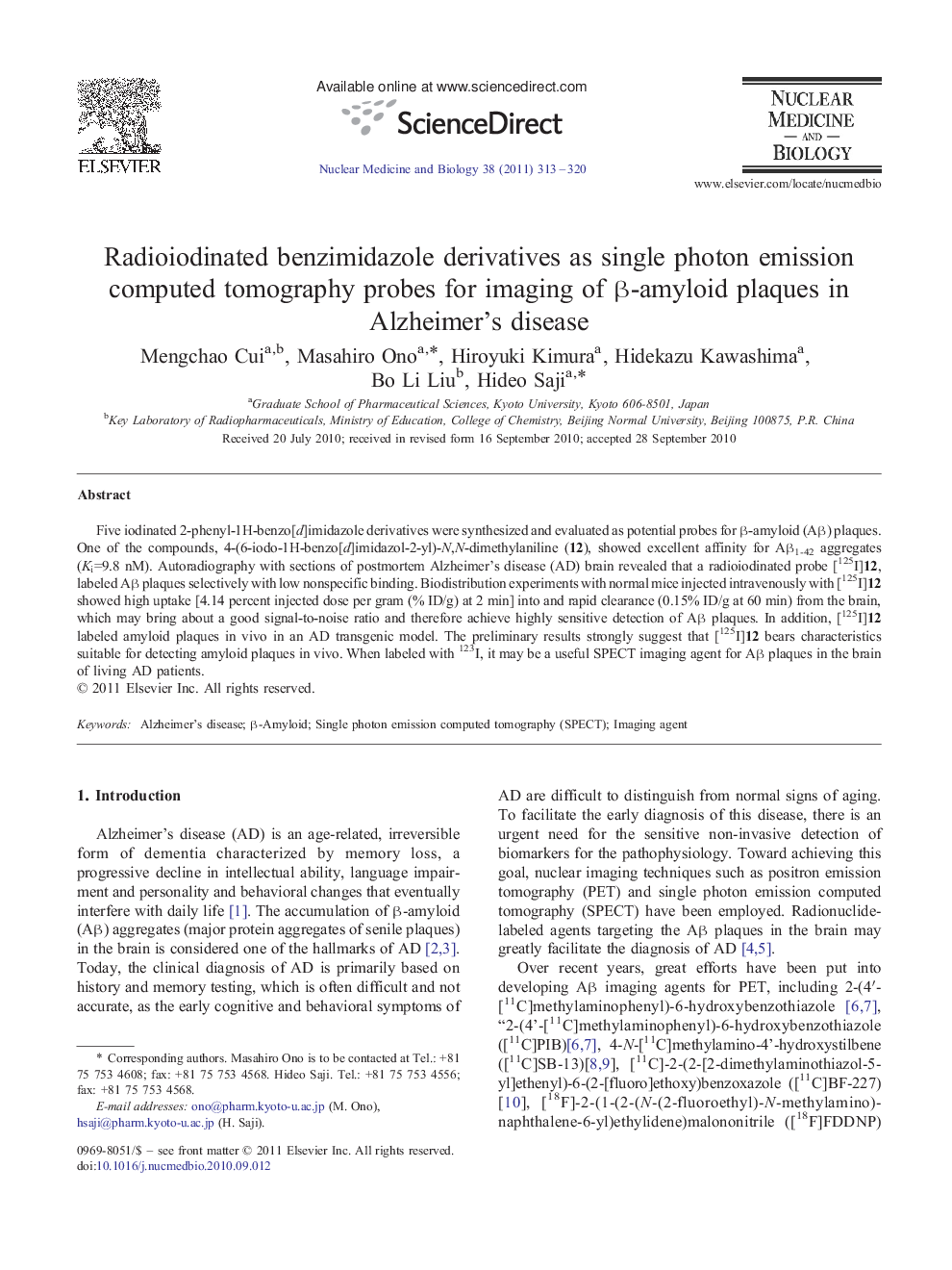| Article ID | Journal | Published Year | Pages | File Type |
|---|---|---|---|---|
| 2154325 | Nuclear Medicine and Biology | 2011 | 8 Pages |
Five iodinated 2-phenyl-1H-benzo[d]imidazole derivatives were synthesized and evaluated as potential probes for β-amyloid (Aβ) plaques. One of the compounds, 4-(6-iodo-1H-benzo[d]imidazol-2-yl)-N,N-dimethylaniline (12), showed excellent affinity for Aβ1-42 aggregates (Ki=9.8 nM). Autoradiography with sections of postmortem Alzheimer's disease (AD) brain revealed that a radioiodinated probe [125I]12, labeled Aβ plaques selectively with low nonspecific binding. Biodistribution experiments with normal mice injected intravenously with [125I]12 showed high uptake [4.14 percent injected dose per gram (% ID/g) at 2 min] into and rapid clearance (0.15% ID/g at 60 min) from the brain, which may bring about a good signal-to-noise ratio and therefore achieve highly sensitive detection of Aβ plaques. In addition, [125I]12 labeled amyloid plaques in vivo in an AD transgenic model. The preliminary results strongly suggest that [125I]12 bears characteristics suitable for detecting amyloid plaques in vivo. When labeled with 123I, it may be a useful SPECT imaging agent for Aβ plaques in the brain of living AD patients.
